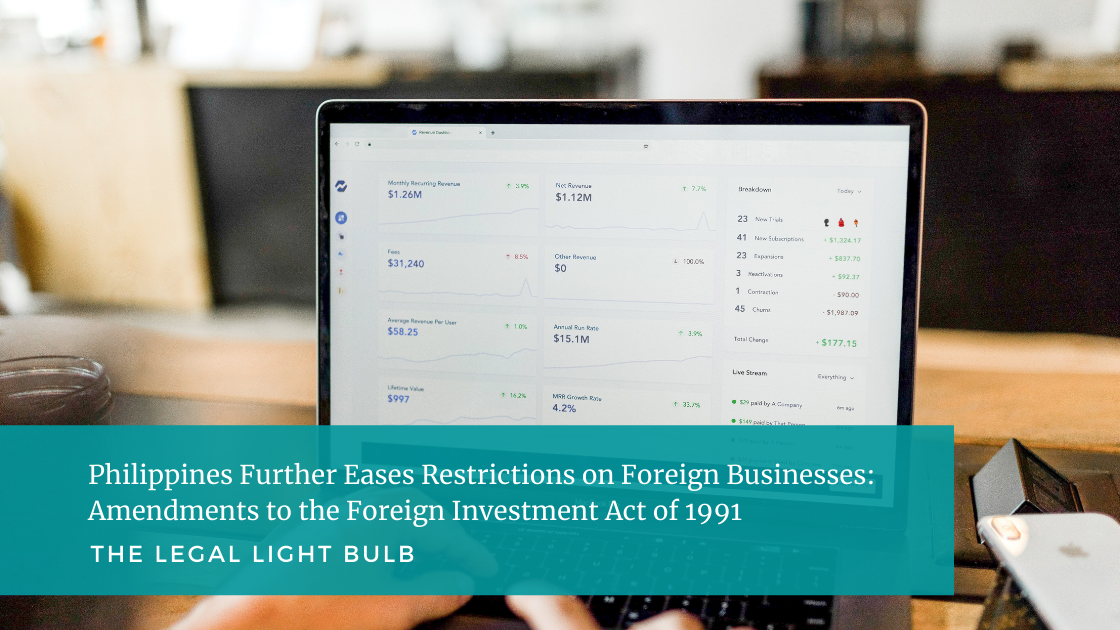In a world trying to pick itself up after a series of unfortunate events, from a death-dealing Pandemic to threats of a disastrous war, every head of state is on a quest for a ploy to help reawaken their debilitated economy.
Like any other corner of the globe, the Philippines was not spared from the economical destructions brought about by the global pandemic worsened by the Russia-Ukraine conflict. To address this drawback, the outgoing Philippine administration introduced amendments to the Foreign Investment Act of 1991 bypassing Republic Act No. 11647. This new law, which was certified as urgent while it was still pending as a Senate Bill, is consistent with the policy of the State to attract, promote and welcome productive investments from foreign individuals, partnerships, corporations, and governments, including their political subdivisions, in activities which significantly contribute to sustainable, inclusive, resilient, and innovative economic growth, productivity, global competitiveness, employment creation, technological advancement, and countrywide development.
Prior to this amendment, the Foreign Investment Act of 1991 provides that micro and small domestic market enterprises with paid-in capital of less than 200,000.00 USD are reserved for Philippine nationals. This essentially barred foreign participation for enterprises operating in the domestic market if the paid-in capital is less than 200,000.00 USD, with an exception of foreign investments with paid-in capital of at least 100,000.00 USD that either involves advanced technology or employs at least 50 direct employees.
With the Amendment, foreign entities with at least 100,000.00 USD paid-in capital that have been endorsed as startup or startup enablers by the lead host agencies pursuant to the Innovative Startup Act are now allowed participation in Philippine domestic enterprises. Qualified foreign investors are likewise now allowed to do business in the Philippines or invest in a domestic enterprise up to 100% of its capital.
Further, foreign entities with paid-in capital of at least 100,000.00 USD that wish to participate in domestic enterprises are no longer required to employ at least 50 direct employees. The Amendment now only requires that the majority of its direct employees are Filipinos with at least 15 Filipino direct hires.
Another salient feature of this Amendment is the removal of the practice of profession from the scope of the Foreign Investment Act. This means foreign investment is now allowed for the practice of the profession in the country even if the capital is less than the required minimum paid-in capital for domestic market enterprises, subject only to restrictions under specific laws and reciprocity agreements with other countries.
“Indeed, we cannot overemphasize the importance of a major shift in mindset and economic policy direction. For the country to lead a path to recovery amid COVID-19, we have been a consistent advocate for the amendment of this passage which aims to lessen barriers to foreign entry and is expected to hasten the country’s economic growth through foreign investment,” Trade Secretary and Board of Investments Chairman Ramon Lopez said.
The Government believes that these relaxed restrictions would allow more investments to flow through various sectors, generate more job opportunities, and open new possibilities within the recovering





